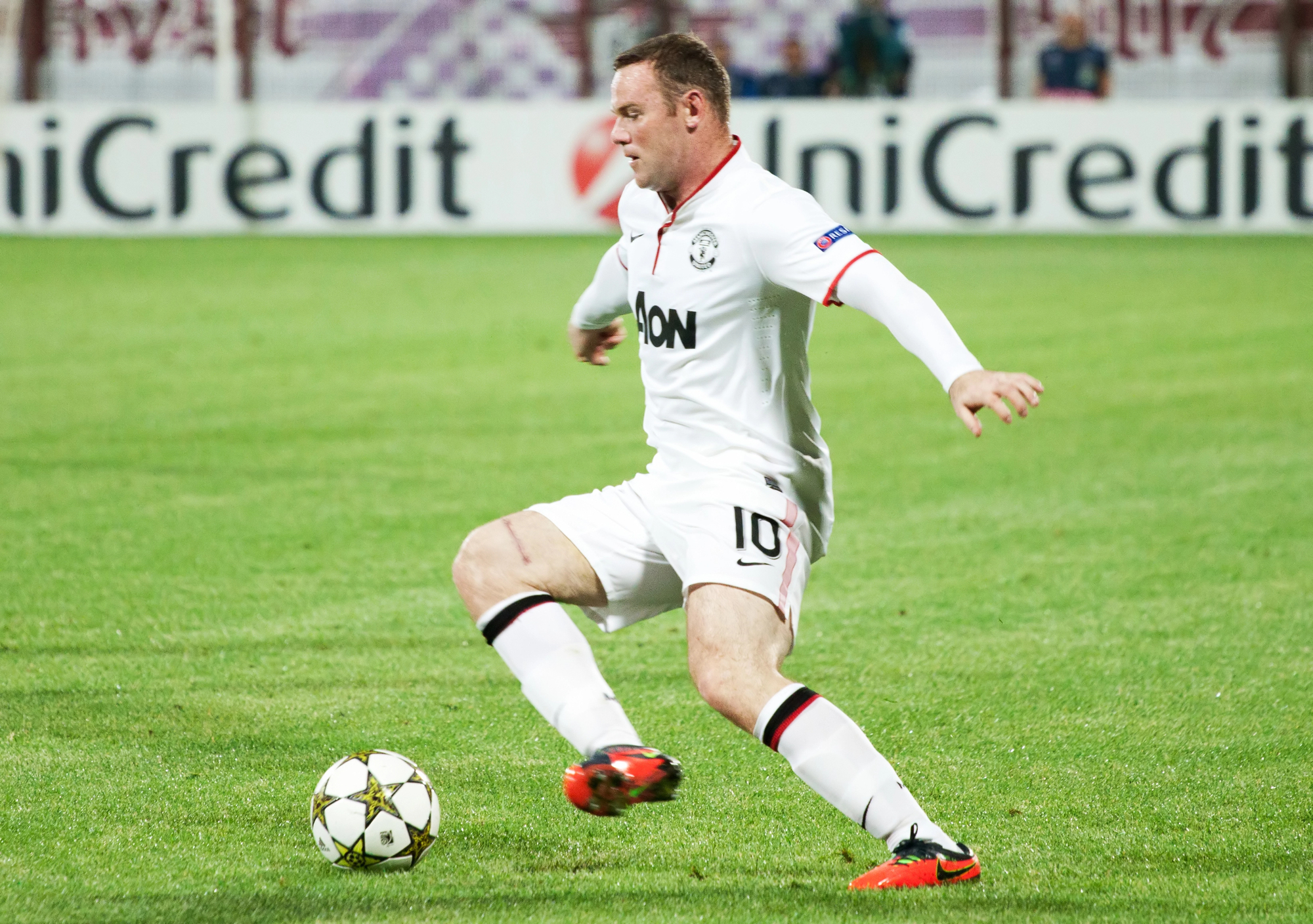Wayne Rooney’s name is etched into the annals of football history, bestowed with the nickname of white Pele while playing in Manchester.
From his early days as a precocious talent at Everton to his storied career at Manchester United, few can match his legacy.
Ahead of his return to the Theatre of Dreams for the Legends fixture against Celtic, we look back at a stellar playing career and dive into his managerial venture.
Early Years at Everton
The Croxteth-born sensations footballing journey began in Liverpool, where he was born on October 24, 1985.
Showing promise from an early age, Rooney joined the Everton youth academy when he was nine. It became apparent that the Toffees had a child prodigy on their hands.
Wazza’s performances were spectacular; he was a blend of physical power, technical skill, and football intelligence far beyond his years.
In 2002, at just 16, he made his senior debut for David Moyes against Tottenham Hotspur. The world took notice of him a few weeks later when he scored a stunning last-minute winner against Arsenal, ending their 30-match unbeaten run.
That goal established Rooney as the youngest scorer in Premier League history at the time, and the celebration became an iconic image. The teenager had arrived, and the football world was buzzing.
Manchester United | Glory and Conflict
This meteoric rise caught the attention of top clubs across Europe. But Manchester United, under the legendary Sir Alex Ferguson, secured his signature in the summer of 2004 for a fee of £27 million – a then record for a teenager.
Wayne’s debut was unforgettable – scoring a hat-trick and assisting in a 6-2 Champions League victory against Fenerbahce.
Over the next decade, the firey forward would become United’s talisman. His playing style, characterised by his relentless energy, vision, and an insatiable hunger for goals, made him one of the most feared forwards in the game.
Furthermore, his versatility allowed him to play various roles, from leading the line as a striker to dropping deeper as a playmaker.
A partnership with Cristiano Ronaldo during the mid-2000s was particularly memorable.
Together, they spearheaded a ferocious attack, leading the club to three consecutive Premier League titles from 2006 to 2009 and a UEFA Champions League triumph in 2008.
Rooney’s accolades were numerous, including multiple PFA Team of the Year selections and the PFA Players’ Player of the Year in 2010.
However, his time in the Northwest was not without controversy. In 2010, he publicly questioned the club’s ambition and submitted a transfer request, citing concerns over the team’s ability to attract world-class players.
Famously, this led to a highly publicised fallout with Sir Alex. The Scottish manager, known for his no-nonsense approach, was deeply displeased with Rooney’s actions.
The situation was exacerbated when the Liverpudlian expressed a desire to join rivals Manchester City. United fans were outraged, and Rooney’s relationship with the club seemed beyond repair.
Despite the tension, Fergie convinced his marksman to stay, reportedly offering him a lucrative new deal. The forward later apologised to fans and reaffirmed his commitment to the club.
The incident, while damaging in the short term, eventually subsided, and ‘the white Pele’ continued to play a pivotal role at the club. He would break Sir Bobby Charlton’s record to become the club’s all-time leading goal scorer, finishing his United career with 253 goals in 559 appearances.
International Success and Challenges with England
Rooney’s international career was also marked by both significant achievements and moments of frustration.
Having debuted for the senior team in 2003 at 17, the teenager became the youngest player to represent England at the time.
His breakout on the international stage came during Euro 2004, where he scored four goals and was named in the UEFA Team of the Tournament. Many believed he was England’s best hope of winning a major trophy for the first time since 1966.
However, injuries plagued him, and his temper marred crucial moments, such as the 2006 World Cup, where he was sent off in the quarter-final against Portugal, leading to a disappointing exit.
Despite these setbacks, the striker became England’s all-time leading goal scorer in 2015, surpassing Sir Bobby’s record of 49 goals.
He finished his international career with 53 goals in 120 appearances, but the lack of silverware remains a notable gap in his otherwise illustrious career.
Return to Everton and a move to Major League Soccer
By 2017, Rooney’s time in Manchester was coming to an end. The arrival of new players and the emergence of younger talents, such as Marcus Rashford, saw his role diminish.
He returned to Everton in the summer of 2017 to joyous scenes, although it was clear the veteran was no longer at the peak of his powers.
He spent just one season at Goodison, during which he was the club’s top scorer, before moving to Major League Soccer (MLS) to join D.C. United in 2018.
Whatever about his final years in England, his impact in the MLS was immediate – supplying an intensity and professionalism that elevated the standard of play at the club.
He led the Washington outfit from the bottom of the league to a playoff spot, scoring 12 goals in 21 appearances. Wayne’s time in the MLS was brief but impactful – showcasing his enduring love for the game.
Transition into Management
After retiring as a player in January 2021, the United Legend took his first steps into management. His first role came with Derby County, where he joined as a player-coach before becoming interim manager and eventually being appointed permanently.
He faced an enormous challenge at Pride Park, a club embroiled in financial difficulties and relegation battles. Despite the off-field turmoil, he managed to keep the Rams in the Championship during the 2020-2021 season, earning plaudits for his leadership under challenging circumstances.
Following his maiden role, the young tactician broadened his managerial experience by taking charge of two teams in different leagues and countries.
In 2022, he returned to Washington as the head coach of the black-and-Red. His time was marked by efforts to rebuild the squad and instil a competitive mentality, though the results were mixed.
In 2023, he brought his talents back to England with Birmingham City – tasked with stabilising the club and pushing for promotion, drawing on his growing experience as a manager.
Unfortunately for Wazza, his spell with the Blues was short-lived, and the downturn in the team’s form following his takeover was enough for the board to relieve him of his duties less than three months after his appointment.
Stints at both D.C. and Birmingham reflected his commitment to developing his abilities and gaining valuable insights from the challenges of coaching in different footballing environments.
In 2024, he accepted the head coach role at Plymouth Argyle, a club with ambitions of climbing the English football pyramid.
His appointment was viewed as a statement of intent – marking a new chapter in a glittering football journey.
In management, he has shown the same tenacity and drive that characterised his playing days.
Conclusion
Wayne Rooney’s football career is a testament to his extraordinary talent, resilience, and adaptability.
From his early days as a teenage sensation at Everton to his record-breaking exploits at Manchester United and his burgeoning career as a football manager, he has continually evolved and thrived in the face of challenges.
It is a journey filled with triumphs and setbacks, but through it all, Rooney has remained one of the most iconic figures in the sport.
As he embarks on a challenging campaign with the Pilgrims, the football world will be eager to see if the man once known as the White Pele can replicate his success as a player in the dugout.
Let us know your feelings about the great man in the comments or across our social channels.
Recent Posts
- Progression is key for Manchester United ahead of West Ham test
- Exploring the case for a long-term project with Michael Carrick
- United end Spurs hoodoo with comprehensive Old Trafford victory




